It looks like you're using an Ad Blocker.
Please white-list or disable AboveTopSecret.com in your ad-blocking tool.
Thank you.
Some features of ATS will be disabled while you continue to use an ad-blocker.
9
share:
This story is a good example of what not to do if you disagree, but something about this story doesn't seem right.
.....The conspiracy theorist in me tells me there is more to this case.....
I'll copy some of the more important parts of the article here and go see what else I can find about this story, but read the article and tell me what you think.
www.dailymail.co.uk... 0
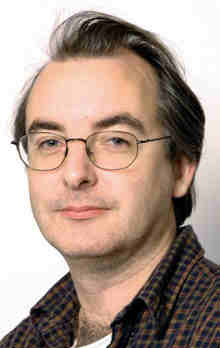
www.bbc.co.uk...
www.telegraph.co.uk...
www.businessinsider.com...
abcnews.go.com...
[www.aol.com...[/url]
www.guardian.co.uk...
.....The conspiracy theorist in me tells me there is more to this case.....
I'll copy some of the more important parts of the article here and go see what else I can find about this story, but read the article and tell me what you think.
www.dailymail.co.uk... 0
Oxford University professor found dead at rival lecturer's home 'following row over academic matters

Professor Steven Rawlings, 50, found dead at home of Dr Devinder Sivia Pair had previously written books together on maths and science Prof Rawlings 'died of a heart attack caused by alleged assault'
He is believed to have died of a heart attack, brought on by an alleged assault. Officers have arrested a 49-year-old man on suspicion of murder, but have refused to confirm whether the man they have in custody is Dr Sivia.
Sources said they believe the two academics, who specialise in physics, chemistry and astrophysics, had been arguing over education matters
Steve held his St Peter's Fellowship in conjunction with a University Lecturership in Astrophysics, later becoming Professor.
He was Head of the sub-Department of Astrophysics of the University of Oxford from 2006 to 2010.
He was one of the lead scientists in the international Square Kilometre Array (SKA) project and also played a prominent role in the redevelopment of the Goonhilly Satellite Earth Station in Cornwall as a radio astronomy facility.
www.bbc.co.uk...
www.telegraph.co.uk...
www.businessinsider.com...
abcnews.go.com...
[www.aol.com...[/url]
www.guardian.co.uk...
edit on 12-1-2012 by isyeye because: (no reason given)
edit on 12-1-2012 by isyeye because: (no reason
given)
en.wikipedia.org...
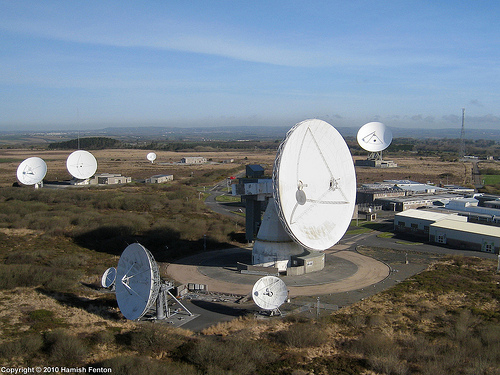
www.skatelescope.org...
Artist's impression of the SKA dishes
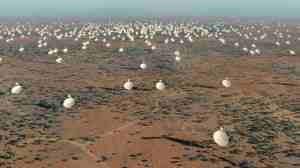
www.jodrellbank.manchester.ac.uk...
www.skatelescope.org...
www.skatelescope.org...
This was Steve Rawlings page, but it appears to have been deleted.
www-astro.physics.ox.ac.uk...
www.physics.ox.ac.uk...
From St. Peter's College University of Oxford
www.spc.ox.ac.uk...
www.jodrellbank.manchester.ac.uk...
Goonhilly Satellite Earth Station is a large telecommunications site located on Goonhilly Downs near Helston on the Lizard peninsula in Cornwall, England, UK. Owned by BT Group plc, it was at one time the largest satellite earth station in the world, with more than 25 communications dishes in use and over 60 in total. The site also links into undersea cable lines.

www.skatelescope.org...
The Square Kilometer Array
Exploring the Universe with the worlds largest telescope
The Square Kilometre Array will be the world’s largest and most sensitive radio telescope.
An array of thousands of receptors will extend out to distances of 3,000 km from a central core region. The SKA will address fundamental unanswered questions about our Universe including how the first stars and galaxies formed after the Big Bang, how galaxies have evolved since then, the role of magnetism in the cosmos, the nature of gravity, and the search for life beyond Earth.
Sixty seven organisations in 20 countries, together with industry partners, are participating in the scientific and technical design of the SKA telescope which will be located in either Australia – New Zealand or Southern Africa extending to the Indian Ocean Islands. The target construction cost is €1,500 million and construction is scheduled to start in 2016.
Artist's impression of the SKA dishes

www.jodrellbank.manchester.ac.uk...
www.skatelescope.org...
It is with great sadness that we report the death of Professor Steve Rawlings. Steve was a Fellow and Tutor in Physics and Head of Sub-Department of Astrophysics at St. Peter’s College, The University of Oxford.
Steve was a great advocate of the international SKA project over many years, acting as PrepSKA Scientific Co-ordinator and as a member of the SKA Science and Engineering Committee until last year. He played a key role in the UK’s successful bid to host the Office of the SKA Organisation for the period 2012-15.
Steve will be sadly missed and our condolences go out to his family, friends and colleagues around the world.
www.skatelescope.org...
This was Steve Rawlings page, but it appears to have been deleted.
www-astro.physics.ox.ac.uk...
www.physics.ox.ac.uk...
Professor Steve Rawlings
Qualifications: MA, PhD
Position: University Professor
Departmental duties:
Teaching duties: I lecture on vector calculus to first year undergraduates and I am a Tutorial Fellow at St Peter's.
Research Interests: Observational cosmology. Cosmic evolution of galaxies and AGN and feedback mechanisms. Physics of extragalactic radio sources and AGN. Large-scale structure and the cosmic evolution of galaxy clusters. Next-generation radio telescopes and their role in constraining cosmological parameters, dark energy and hot and cold dark matter.
Room: 715
From St. Peter's College University of Oxford
www.spc.ox.ac.uk...
We regret to report the death in Oxford on 11 January 2012 of Professor Steve Rawlings, Official Fellow and Tutor in Physics. Steve was elected to his Fellowship in 1994, having initially been employed by the College for two years as Lecturer in Mathematics. He undertook his undergraduate and doctoral studies at the University of Cambridge, and remained there to do post-doctoral work prior to moving to Oxford.
Steve held his St Peter’s Fellowship in conjunction with a University Lecturership in Astrophysics, later becoming Professor. He was Head of the sub-Department of Astrophysics of the University of Oxford from 2006 – 2010. He was one of the lead scientists in the international Square Kilometre Array (SKA) project and also played a prominent role in the redevelopment of the Goonhilly Satellite Earth Station in Cornwall as a radio astronomy facility. He was a much liked and admired tutor and colleague within the College and will be greatly missed. We extend our deepest sympathy to his wife Linda
www.jodrellbank.manchester.ac.uk...
edit on 12-1-2012 by isyeye because: (no reason given)
reply to post by chr0naut
I can't find anything odd here and it seems cut and dry to me.
Nice work on your thread tho.
SnF
I can't find anything odd here and it seems cut and dry to me.
Nice work on your thread tho.
SnF
Was Steve Rawlings murder as it is claimed to be in the media so far?
He was deeply involved in space exploration. Is this a cover story?...a heart attack is easy to fake.
He seems to be an important person that was directly involved in some major research into things like dark energy and the origins of the universe. Did Steve know something that he was murdered for?...or is this just another act of senseless violence?
I'm curious as to what they were argueing over if the story in the media is true.
www.aoc.nrao.edu...
ht.ly...
www.wheretowork.com...
This is the man that is may have killed Steve Rawlings.
Dr Devinder Sivia
www.sjc.ox.ac.uk...
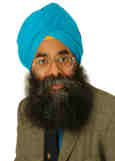
www.wheretowork.com...
He was deeply involved in space exploration. Is this a cover story?...a heart attack is easy to fake.
He seems to be an important person that was directly involved in some major research into things like dark energy and the origins of the universe. Did Steve know something that he was murdered for?...or is this just another act of senseless violence?
I'm curious as to what they were argueing over if the story in the media is true.
www.aoc.nrao.edu...
Dark Energy Experiments with the Square Kilometer Array
For the International SKA Project:
Including the Australian, Canadian, European, and US SKA Consortia and Other Partners
www.skatelescope.org...
Prepared by
C.A. Blake (University of British Columbia), S. Rawlings (University of Oxford), S.L. Bridle
(University College London), F.B. Abdal
ht.ly...
06/11/2011
S Africa, Australia in race to host largest radio telescope
New Delhi, Nov 6 (PTI) South Africa and Australia have placed strong bids to host the world''s largest and most sensitive radio telescope, the site of which is expected to be finalised early next year.
Both the countries are showcasing their abilities to handle the sophisticated project by building powerful radio telescopes with an eye on bagging the bigger prize -- the central core of USD two billion ''Square Kilometer Array'' (SKA) telescope.
www.wheretowork.com...
BAE Systems Engineers Support Global Project to Unlock Secrets of the Universe
BAE Systems has signed a two-year Statement of Mutual Interest (SoMI) to support the Square Kilometre Array (SKA) - the world's largest ever radio telescope network.
The SKA is a €1.5 billion multinational science project which amongst many other research projects, will collect data released by gas clouds after the Big Bang, giving vital clues as to how the universe was formed and whether there might be life on other planets
SKA Project Director, Professor Richard Schilizzi said: “The SKA promises to be one of the top global science projects of the 21st century. Using innovative receptor technologies and one of the world’s most powerful supercomputers, the SKA will probe the origins of the universe. However the spin off technologies will have applications closer to home such as mega-data management, very low-power Radio Frequency devices, and ‘system of systems’ control software”.
This is the man that is may have killed Steve Rawlings.
Dr Devinder Sivia
www.sjc.ox.ac.uk...

Stipendiary Lecturer in Mathematics for the Sciences
Teaching Interests
I have been teaching "Maths for Natural Sciences" to Chemistry and Physics undergraduates for a number of years, and have published two slim tutorial volumes in the Oxford Chemistry Primers series on the "Foundations of Science Mathematics" (1999, OUP).
Research Interests
My research interests revolve around the application of Bayesian probability theory to all sorts of data analysis problems, mainly in the physical sciences, and I have published a tutorial book on the subject: "Data Analysis - a Bayesian tutorial" (1996, Second Edition 2006, OUP).
www.wheretowork.com...
St John's is unique amongst Oxford Colleges in having very recently appointed a Fellow - Dr Devinder Sivia - in 'Mathematics for the Sciences' who provides all the first year college teaching in Mathematics for Chemistry building on his unrivalled experience and expertise. Dr Sivia has published successful textbooks at this level (and beyond). He also holds a corresponding position in the University.
edit on 12-1-2012 by isyeye
because: (no reason given)
extra DIV reply to post by isyeye
It is quite strange in that 2 well-educated, professional people have a falling out. The details are sketchy and I had to read it twice...
Suspicion of murder already? No "helping us with our enquiries", straight away murder? The same article states they could not determine the cause of death and therefore must conduct a post-mortem. Details are sketchy but he was apparently well known in astro-physics circles. In any case, sad news and my condolences to the family.
Unless a woman was the subject of their discussion, it is very strange that people that the neighbours describe as "the best of friends" then suddenly "come to blows" or whatever it was that took place.
It is quite strange in that 2 well-educated, professional people have a falling out. The details are sketchy and I had to read it twice...
Officers have arrested a 49-year-old man on suspicion of murder, but have refused to confirm whether the man they have in custody is Dr Sivia.
Suspicion of murder already? No "helping us with our enquiries", straight away murder? The same article states they could not determine the cause of death and therefore must conduct a post-mortem. Details are sketchy but he was apparently well known in astro-physics circles. In any case, sad news and my condolences to the family.
Unless a woman was the subject of their discussion, it is very strange that people that the neighbours describe as "the best of friends" then suddenly "come to blows" or whatever it was that took place.
edit on 12/1/12 by LightSpeedDriver because: Grammar mess
This is curious. I found a picture that shows Devinder Sivia with someone that may be Steve but it may be someone named Robin Morris. What's odd
about it is that if you go to the website it is on, the picture has been deleted, but you can still see it in a search on Google Image. Does that
mean anything?
Click on the link below and it will show that it's deleted,
but look at the picture at the bottom, and you can the picture is on that link.
picasaweb.google.com...
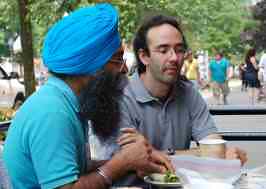
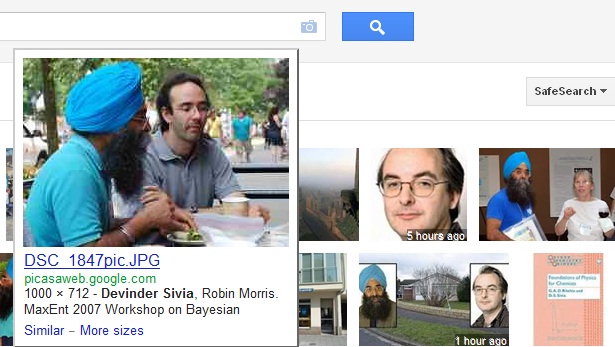

It is not Robin Morris. I think it is a picture of Steve and someone
has tried to delete the photos from the internet
The second man from the left is Robin Morris.
www.iop.kcl.ac.uk...
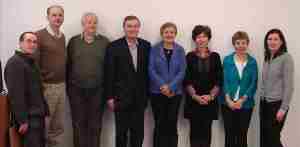
If someone is attempting to remove pictures of the two of them together,
there may be something going on.
If anyone else finds more pictures of Steve Rawlings please post them
so we can see if the man in the picture is Steve or not.
This is the only other picture of Steve that I've been able to find.
academic.research.microsoft.com...
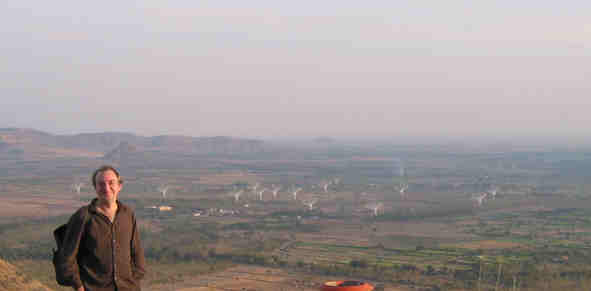
Click on the link below and it will show that it's deleted,
but look at the picture at the bottom, and you can the picture is on that link.
picasaweb.google.com...



It is not Robin Morris. I think it is a picture of Steve and someone
has tried to delete the photos from the internet
The second man from the left is Robin Morris.
www.iop.kcl.ac.uk...

Photograph: The MIDAS group recently presented their research at the 5th International Conference on Memory in a symposium organised by Robin Morris and Linda Clare. From left to right: Anthony Martyr (Bangor University, Robin Morris (KCL IOP), Christopher Whitaker (Bangor University), Bob Woods Bangor University), Linda Clare (Bangor University), Ilona Roth (Open University), Ivana Markova (Hull University) and Sharon Nelis (Bangor University).
If someone is attempting to remove pictures of the two of them together,
there may be something going on.
If anyone else finds more pictures of Steve Rawlings please post them
so we can see if the man in the picture is Steve or not.
This is the only other picture of Steve that I've been able to find.
academic.research.microsoft.com...

edit on 12-1-2012 by isyeye because: (no reason given)
Something else strange. I found a document by Matt Jarvis with something interesting about Steve Rawlings on it......but the documents at other sites
don't say that....?????
source
MSPゴシックThe Radio Sky
Matt Jarvis (not Steve Rawlings!)
University of Hertfordshire
Semi-Empirical eXtragalactic S3-SEX Simulation
Starting point: a z=0 (δρ/ρ)DM linear theory dark matter density field defined on a 550x550x1500 grid of 5 Mpc/h cells
Cosmology: H0=70 km/s/Mpc, ΩM=0.3, ΩΛ=0.7, σ8=0.74, BAO P(k)
Wilman et al. (2008) - MNRAS
In the ith cell, for each source population:
• Poisson sample the LF at L > Li
• In the limit (δρ/ρ)→0, (δn/n) → b(z)G(z)(δρ/ρ) (i.e. a linear bias model)
Redshift
source
source
source
MSPゴシックThe Radio Sky
Matt Jarvis (not Steve Rawlings!)
University of Hertfordshire
Semi-Empirical eXtragalactic S3-SEX Simulation
Starting point: a z=0 (δρ/ρ)DM linear theory dark matter density field defined on a 550x550x1500 grid of 5 Mpc/h cells
Cosmology: H0=70 km/s/Mpc, ΩM=0.3, ΩΛ=0.7, σ8=0.74, BAO P(k)
Wilman et al. (2008) - MNRAS
In the ith cell, for each source population:
• Poisson sample the LF at L > Li
• In the limit (δρ/ρ)→0, (δn/n) → b(z)G(z)(δρ/ρ) (i.e. a linear bias model)
Redshift
source
source
edit on 12-1-2012 by isyeye because: (no reason given)
I suppose his occupation is bound to give rise to speculation. But what if we find that it was in fact a result of his friend attacking him? I would
have to ask what is going on? Even MSM news article comments are picking up on it. It seems that every day we hear of some senseless killing. Things
are ramping up. But what 'things' I don't know.
Sivia has been released on bail.
physicsworld.com...
www.mirror.co.uk...
"Keeping an open mind" would lead me to believe that the police think something may be unusual about the case.
physicsworld.com...
Sivia remained in police custody until late this morning but has now been released on bail until 18 April. Rawlings and Sivia co-wrote a book called Foundations of Science Mathematics, which was published in 1999 by Oxford University Press. "We are all stunned here," Roger Davies, head of astrophysics at Oxford University, told physicsworld.com.
www.mirror.co.uk...
"A substantial amount of information is already in the public domain and we can confirm that the two individuals involved have been friends for over 30 years.
"I would emphasise that the police are investigating all potential circumstances that could have led to his death.
"We are mindful that ultimately the death may be a matter for a coroner's inquest rather than a criminal court and I would ask for patience from both the media and the public while we continue our investigation.
"Due to the post-mortem examination results proving inconclusive and further examinations being required, this has necessitated a lengthy bail date."
Dr Sivia was bailed until April 18.
Police are refusing to speculate on the circumstances surrounding his death and said earlier that they were "keeping an open mind".
The force was unable to confirm if the two men - who published the book Foundations Of Science Mathematics together in 1999 - had been out socially together in the hours before his death.
"Keeping an open mind" would lead me to believe that the police think something may be unusual about the case.
edit on 13-1-2012 by isyeye
because: (no reason given)
Originally posted by randyvs
reply to post by chr0naut
I can't find anything odd here and it seems cut and dry to me.
Nice work on your thread tho.
SnF
Umm,wasn't actually my thread.
But I agree that this doesn't look suspicious.
‘He worked with David Kelly and knew him well,’ said Gurdip, 59. ‘They worked together I think and lived very near each other.’
Ah! I was just searching for this as I was going to post a thread.
Yes gang, the "Search" function, is your friend!
I agree with you OP. This is super weird.
Another quote from the article, regarding Rawlings behavior -
Rawlings and Sivia were friends for over 30 years. Something is off with this story.
Telegraph
NT Times
Yes gang, the "Search" function, is your friend!
I agree with you OP. This is super weird.
Staff at the Bear Hotel in Wantage said Professor Rawlings, had turned up with Dr Sivia on Wednesday at around 6.30pm.
"He had appeared to be in a strange and subdued mood and was eager to leave once they had finished their meal."
“There was no atmosphere between them, they were quiet, I did sense something wasn’t right when they walked in to the restaurant."
Another quote from the article, regarding Rawlings behavior -
"He had a breakdown last year and on that occasion was found wandering around the village in his dressing gown in the middle of the night."
Rawlings and Sivia were friends for over 30 years. Something is off with this story.
Telegraph
NT Times
reply to post by WeMoveUnseen
Regarding the David Kelly "tie-in", they lived in the same village of Southmoor. Where did you find that quote? I can't find it.
This was taken from the NY Times article linked above.
Regarding the David Kelly "tie-in", they lived in the same village of Southmoor. Where did you find that quote? I can't find it.
The village has its own link to high intrigue, too. In 2003, another Southmoor resident, David Kelly, one of Britain’s leading experts on chemical and biological weapons, walked up Harrowdown Hill, a local landmark, where he was found dead the next day, his wrist slashed. Years of official inquiries failed to establish conclusively if it was suicide or foul play. Dr. Kelly was under pressure from Prime Minister Tony Blair’s government after he accused government officials of exaggerating intelligence pointing to Saddam Hussein’s possession of unconventional weapons.
This was taken from the NY Times article linked above.
reply to post by isyeye
I found a picture of Rawlings and his wife but I can't seem to get the image upload to work for me right now.
Hopefully, this link will work for you-
Link with Picture
I found a picture of Rawlings and his wife but I can't seem to get the image upload to work for me right now.
Hopefully, this link will work for you-
Link with Picture
new topics
-
Paradox of Progress
Ancient & Lost Civilizations: 4 hours ago -
Joe Biden gives the USA's Highest Civilian Honor Award to Hillary Clinton and George Soros.
US Political Madness: 6 hours ago -
Winter Storm
Fragile Earth: 7 hours ago -
Biden Face Planted Somewhere
Politicians & People: 9 hours ago -
A great artist and storyteller, for kids of all ages
General Entertainment: 10 hours ago
top topics
-
Joe Biden gives the USA's Highest Civilian Honor Award to Hillary Clinton and George Soros.
US Political Madness: 6 hours ago, 13 flags -
What Is 'Quad Demic'? Mask Mandate Returns In These US States
Diseases and Pandemics: 13 hours ago, 11 flags -
Volcano Watch 2025
Fragile Earth: 16 hours ago, 8 flags -
The Future of fashion .
Social Issues and Civil Unrest: 14 hours ago, 8 flags -
Winter Storm
Fragile Earth: 7 hours ago, 7 flags -
Bin Cyber Junk…
Short Stories: 15 hours ago, 6 flags -
Biden Face Planted Somewhere
Politicians & People: 9 hours ago, 5 flags -
A great artist and storyteller, for kids of all ages
General Entertainment: 10 hours ago, 5 flags -
Paradox of Progress
Ancient & Lost Civilizations: 4 hours ago, 5 flags -
The Undertones - Teenage Kicks
Music: 15 hours ago, 3 flags
active topics
-
Post A Funny (T&C Friendly) Pic Part IV: The LOL awakens!
General Chit Chat • 7988 • : KrustyKrab -
Winter Storm
Fragile Earth • 18 • : RickyD -
What Is 'Quad Demic'? Mask Mandate Returns In These US States
Diseases and Pandemics • 29 • : TheRickestRick -
Paradox of Progress
Ancient & Lost Civilizations • 3 • : BingoMcGoof -
Here we again... CHINA having mass outbreak of something
Diseases and Pandemics • 24 • : NoCorruptionAllowed -
A great artist and storyteller, for kids of all ages
General Entertainment • 1 • : angelchemuel -
-@TH3WH17ERABB17- -Q- ---TIME TO SHOW THE WORLD--- -Part- --44--
Dissecting Disinformation • 3931 • : RelSciHistItSufi -
Joe Biden gives the USA's Highest Civilian Honor Award to Hillary Clinton and George Soros.
US Political Madness • 29 • : caterpillage -
NJ Drones tied to Tesla explosion at Trump Las vegas
General Conspiracies • 45 • : glen200376 -
New Jersey-Teachers Can Now Be Certified Without Passing Basic Reading Writing Math Testing
Education and Media • 14 • : boatguy12
9
